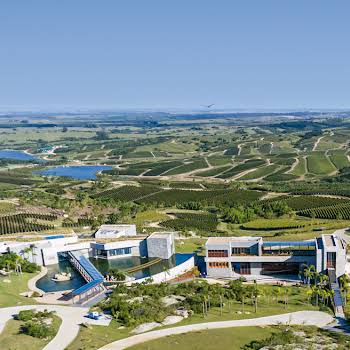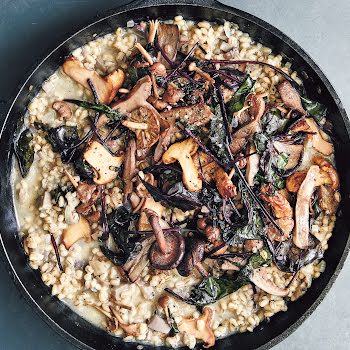What’s the difference between biodynamic, organic, and natural wine?
By Lauren Heskin
20th Nov 2021
20th Nov 2021
Already putting your festive shopping list together? Here's how to tell the difference between biodynamic, organic and natural wine so you can impress everyone with your knowledge this Christmas.
It’s easy to feel intimidated when it comes to buying wine. The melange of regions, grapes, tasting notes and colourings means it can be difficult to articulate what you want when broached by a wine salesperson or sommelier. And now it’s become even more complicated with the growth of organic, biodynamic, and natural wine.
So what is the difference between all these “new” wine words?
Really, they all have a similar aim – to minimise the impact on the grape-growing and wine-making process. Many modern wines undergo a significant amount of manipulation before being poured into your glass. This includes using pesticides and machine harvesting during the farming period, and the chemical additives and sulphates added while in the cellar. Organic, biodynamic and natural wines are a reaction to that, calling for a return to the traditional way of viticulture with minimal environmental impact.
Organic Wine
Organic wine means exactly what you might imagine, it grows and bottles wine using certified organic materials. However, this relies as much on the climate on the region as anything else, says wine expert Aoife Carrigy. “If a wine is produced with organic grapes, that often tells you more about the climatic conditions of the region than the ethos of the winery or the quality of its wine.” Organic wine is strictly regulated and has to reach standards in order to advertise as organic but some of these wines can use animal products so may not be safe for vegans. Organic wine Many also use sulphates in the bottling process, except in the US where the regulatory body does not allow it.
Producing organic wines requires a relatively balanced climate year-on-year and the process can be costly but doesn’t necessarily lead to expensive wine as they don’t require any of the pesticides. There is also no significant difference in the taste of organic wines, it’s more about environmental peace of mind when it comes to what you’re consuming.
Biodynamic Wine
However, not all climates and terrains are suitable for organic farming, which is where biodynamic farming comes in. Biodynamic farming actually goes a step further than organic farming as it holds many of the same standards of organic farming, like the ban on using any form of pesticides or chemicals, and also follow a set of farming practices based on the timelines of the lunar phases, and a generally more holistic approach to farming. It puts extra emphasis on the local climate, soil and farming techniques to ensure that the grapes are grown in ideal conditions.

Many feel that this careful consideration of the local environment results in a flavour that is reflective of the wine’s terroir. Without any chemical additives and a harvesting process that’s in line with the local ecological system, all of its flavours comes from the grapes. “Biodynamic wines involve a more complex approach and tend to be produced by wine-makers who are keen to express the terroir of the vineyards,” explains Aoife.
Natural Wine
Natural wine is a slightly looser, unregulated term and refers more to the winemaker’s attitude to winemaking. Unlike the detailed requirements to be certified as an organic wine, it generally refers to the vinification process, rather than the farming of the grapes. Natural wines undergo as little change as possible during vinification. This means that grapes are harvested usually by hand and then hand pressed. The grapes aren’t necessarily grown organically either, though inevitably natural wine growers prefer to use organic grapes.
The most obvious difference in a natural wine is their cloudy appearance, as they are not filtered and sometimes have a strong sulphurous odour. This is caused by the lack of sulphates added, which also means it doesn’t last as long as other wines, but purveyors say natural wines have a purer, wilder flavour.























